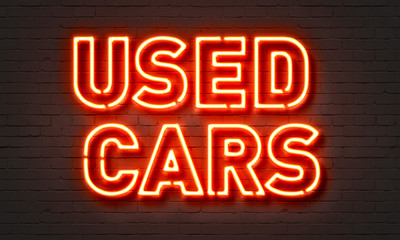Skip to content
How to choose the right used vehicle for you!

-
Determine Your Needs: Before you start browsing listings, take the time to assess your needs. Consider factors such as your lifestyle, daily commute, family size, and desired features. Are you looking for a fuel-efficient sedan, a spacious SUV, or a versatile hatchback? Understanding your requirements will help narrow down your search and make a more focused decision.
-
Set a Budget: Establishing a budget is crucial when buying a used car. Determine the maximum amount you’re willing to spend, taking into account not just the purchase price but also additional expenses like insurance, maintenance, and fuel costs. Research market prices for the specific make and model you’re interested in, and be realistic about what you can afford.
-
Research Reliability and Reviews: Once you’ve identified a few models that align with your needs and budget, dive into research. Look for online reviews, reliability ratings, and common issues associated with the models you’re considering. Reliable sources such as consumer reports and automotive forums can provide valuable insights into the longevity and overall satisfaction of a particular make and model.
-
Vehicle History Report: When buying a used car, it’s essential to obtain a vehicle history report. This report provides valuable information about the car’s past, including accidents, previous ownership, mileage records, and service history. Services like Carfax or AutoCheck can provide these reports, allowing you to make an informed decision and avoid potential problems down the road.
-
Inspect and Test Drive: Before making a purchase, physically inspect the car or have it inspected by a trusted mechanic. Look for signs of wear and tear, check the tires, brakes, and fluids, and ensure all the essential features are functioning properly. Don’t hesitate to take the car for a test drive to assess its performance, handling, and overall comfort. Pay attention to any unusual noises or vibrations.
-
Consider Ownership Costs: Besides the purchase price, consider the long-term ownership costs. Research the vehicle’s fuel efficiency, insurance rates, maintenance and repair costs, and availability of spare parts. Some cars may have higher insurance premiums or expensive maintenance requirements, which can impact your budget over time.
-
Dealer vs. Private Seller: Decide whether you prefer buying from a reputable dealer or a private seller. Dealerships often offer certified pre-owned programs and warranties, providing added peace of mind. Private sellers may offer lower prices, but ensure you conduct due diligence and have a trusted mechanic inspect the vehicle before finalizing the purchase.
-
Negotiate and Finalize the Deal: Once you’ve found the right used car, it’s time to negotiate the price. Research similar listings and use this information to your advantage during negotiations. Don’t be afraid to walk away if the deal doesn’t meet your expectations. Before finalizing the purchase, carefully review all documents, including the title, registration, and warranty information.
Share This Article, Choose Your Platform!
Page load link


